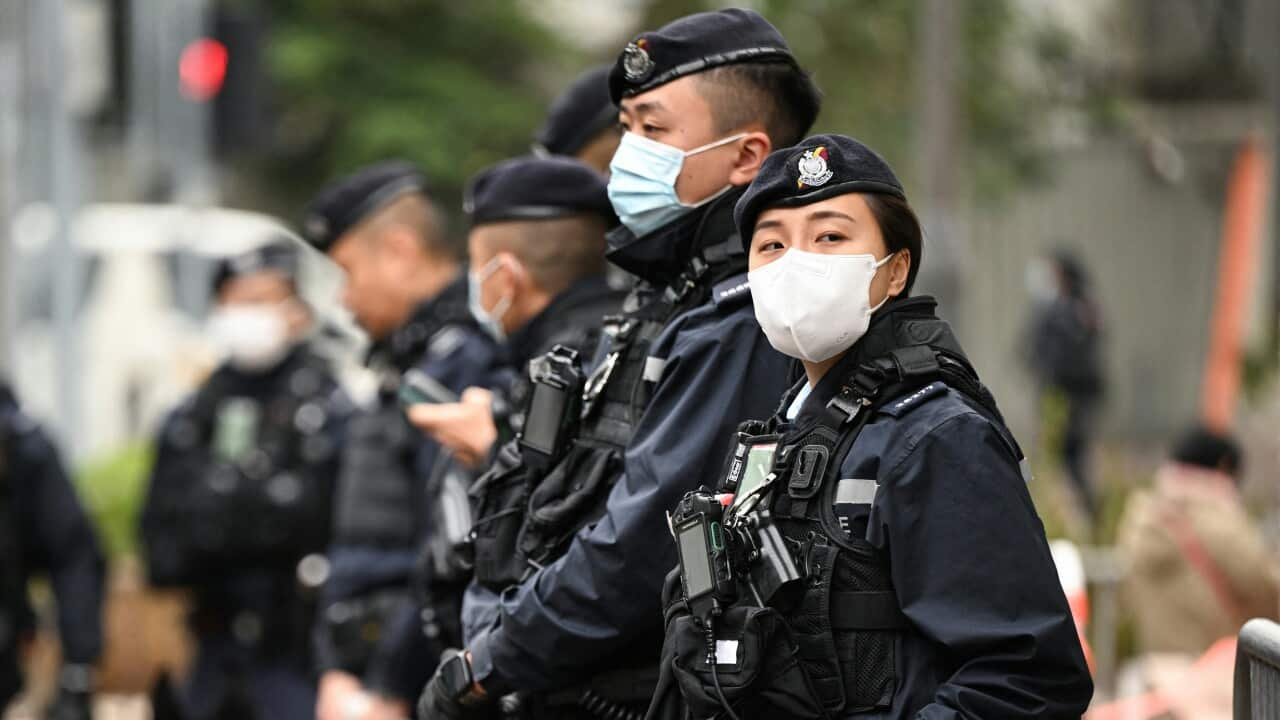Key Points
- The controversial legislature passed the Safeguarding National Security Bill during a special session on Tuesday.
- The law threatens stringent penalties for a wide range of actions authorities call threats to national security.
- Critics worry the new law will further erode civil liberties.
Hong Kong MPs have passed a new national security law that grants the government more power to quash dissent, widely seen as the latest step in a sweeping political crackdown that was triggered by pro-democracy protests in 2019.
What do the new laws involve?
The package, known as Article 23, updates or introduces new laws to prohibit treason, sabotage, sedition, the theft of state secrets and espionage. It also potentially tightens control over foreign political bodies and organisations operating in the city, through provisions defining "external forces" and outlawing "external interference".
Some lawyers said elements of the revised sentences for the offences are similar to Western ones but some provisions, such as those for sedition and state secrets, were broader and potentially tougher.
The law includes sentences of up to life imprisonment for treason, insurrection, sabotage by colluding with external forces to damage public infrastructure and inciting members of Chinese armed force to mutiny; 20 years for espionage and 10 years for crimes linked to state secrets and sedition, while noting Hong Kong's freedom of expression and other rights.
The need for those specific laws is briefly stipulated in Article 23 of the Basic Law, the mini-constitutional document that has guided Hong Kong's relations with China since its handover from British colonial rule in 1997.
A previous attempt to enact Article 23 in 2003 was shelved after an estimated 500,000 people staged a peaceful protest.
What impact could they have?
Businesses including foreign banks, hedge funds, private research operations and media outlets, along with diplomats and academics are watching developments.
Some fear the laws could further restrict the city's freedoms while others are concerned the final laws could impact data security while state secrets provisions could hamper research and information gathering.
The law creates a new sabotage offence of unlawfully using a computer or electronic system to endanger national security, punishable by 20 years in prison.
The definition of state secrets appears quite broad, some lawyers said, saying it includes military, security and diplomatic secrets as well as classified social, economic and technological information involving the Chinese and Hong Kong governments, and their relationship.
But while the types of information included are wide-ranging, the law still stipulates that it must be information that is secret and would threaten national security if disclosed.
The law provides for public interest defences, but the threshold appears high as long as "making the disclosure manifestly outweighs the public interest served by not making the disclosure".
Hong Kong's leader John Lee says the laws meet international standards and protect Hong Kong's rights and freedoms.

An armoured police vehicle is parked outside the Legislative Council complex in Hong Kong, China. The Legislative Council in Hong Kong has passed the Safeguarding National Security Bill, also known as the Article 23 legislation. Source: Getty / Vernon Yuen
Isn't Hong Kong already subject to national security laws?
Yes. It has several old, vague and arcane laws from its days as a British colony that remain on the books.
Beijing also imposed a sweeping national security law in 2020, with officials saying it was needed to bring stability to Hong Kong after months of pro-democracy protests in 2019.
That law dealt with only some offences, such as collusion with foreign forces, and also allowed mainland national security officers to be based in the city for the first time.
It also created a provision where suspects could be sent for trial in the mainland, where the courts are under the control of the ruling Communist Party.
The 2020 law highlighted the need for Hong Kong to continue its work on Article 23, creating local legislation. Senior Hong Kong officials say it is needed to fill legal loopholes, particularly those dealing with what they describe as "soft resistance" after the 2019 protests, and internet control.
Security chief Chris Tang has repeatedly said the government needs better tools to deal with espionage and the activities of foreign agents in the city.

Lawmakers vote for Article 23 in the chamber of the Legislative Council after the conclusion of the readings of the Article 23 National Security Law, in Hong Kong on 19 March. Source: Getty / Peter Parks
Doesn't China already have a state secrets law?
Reflecting the priorities of President Xi Jinping, China updated its own state secrets laws in 2023, banning the transfer of any information related to national security and broadening the definition of espionage. Some analysts say it remains vague.
Hong Kong's own version has to deal with state secrets but with legislation compatible with the standards of the British-based common law, of which it remains a part.










